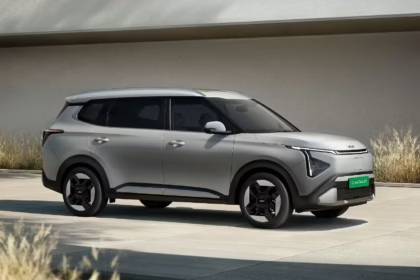Data shows the worldwide electric vehicle (EV) market will achieve new ev sales records due to a projected 20 million vehicles by 2025. This expansion results from engineering and policy support and advances in battery engineering alongside growing interest in environmental transport from consumers.
Governments from around the globe use subsidies coupled with tax breaks and incentives to stimulate consumers to buy EV models. Increasing nations dedicate resources to construct charging stations enabling more people to shift away from petrol and diesel car usage.
Modern battery systems are evolving at a fast pace which results in better range capabilities alongside shorter recharge times and more affordable prices. The development of new EV features continues to improve their practicality and decrease their costs for the general consumer.
The manufacturing industry continues to grow its electric vehicle offerings to provide more selection through different price categories. Public knowledge about environmental issues along with the advantages of cost-efficient fuel consumption contributes to increased EV demand.
The combination of cheaper operational expenses together with lower emissions makes EVs the primary automobile choice among numerous customers. A remarkable speed of growth characterizes the EV industry and global electric mobility can expect its pivotal year in 2025.
The Global Surge in EV Sales
The extension of Chinese auto trade-in schemes will enlarge global EV market sales according to research firm Rho Motion predictions for 2025 that project at least a 17% surge up to over 20 million units sold. Research predicts that 2024 will be a remarkable 40% increase over previous years leading to 11 million EV unit sales in China alone.
Self-propelled and battery-powered vehicles’ rising adoption rate demonstrates Chinese automotive market supremacy and marks a worldwide shift toward environmentally friendly transportation systems.
For several years the global automotive industry poured billions into research and development of electric technology before electric vehicles finally reached this point. The demand for electric vehicles has surged because numerous governments are working to establish 2035 as the deadline for eliminating internal combustion engine (ICE) vehicles.

Visit the 22 Exciting New Electric Cars Debuting at Bharat Mobility Expo 2025 to experience future EV innovation.
Consumer preferences for EVs rose because fuel prices became more expensive and deep environmental concerns grew so people started choosing electric alternatives. These factors contribute to driving overall EV sales in forecasting future transportation changes.
China: The Powerhouse of EV Sales
The Chinese market leads worldwide EV sales patterns which the government accelerates through extensive funding programs and market-based enrollment drives. Extensions of these benefits will allow China to surpass its initial goal for EV sales growth at 17% by 2025.
Chinese-made EVs achieve substantial success in emerging markets because they currently dominate the Latin American and Asia-Pacific region markets with an 80% market presence. The Chinese government launched an incentive program that provides financial support for customers buying electric cars as part of its proactive sales promotion efforts.
The major Chinese companies producing electric vehicles combine BYD with Nio and XPeng to lead this electrical revolution through their contemporary car models powered by state-of-the-art power systems.
China possesses an extensive charging infrastructure network that gives consumers significant advantages for adapting from gasoline vehicles to electric vehicles. China will sustain its rising electric vehicle sales in the next decade due to enhancements in manufacturing capabilities including scaling operations.
Europe: A Steady Climb in EV Sales
The European EV market which ranks as the world’s second-largest will sustain its rising sales numbers at a rate slightly lower than that of last year. Future market growth is expected at 15% due to both upgraded CO2 emission standards and inexpensive EV models entering the market.
Multiple European car manufacturers confront a serious challenge because failure to fulfill EU pollution regulations could result in 10-billion-euro fines. Regulatory pressure from EU authorities will probably trigger intensified attention toward developing both EV sales markets and charging infrastructure networks.
Several major European automotive markets led by Germany France and the United Kingdom plan to drive EV adoption through future laws banning golf car engine sales over the coming ten years. The government offers incentives through tax breaks as well as grants and subsidies which help reduce the purchasing costs of EVs for consumers.
The demand for EVs has triggered European car companies including Volkswagen, Mercedes-Benz, and Renault to enhance their production levels. The automotive manufacturers enhance EV sales growth through their development of diverse electric models which now range from city cars to high-performance electric SUVs.
United States: A Pivotal Year for EV Sales
Predictions for EV sales across the United States during 2025 remain uncertain. Manufacturers previously targeted robust electrification goals but recent policy changes at the Trump presidential level could cut down on market speed. Major industry participants continue their dedication to growing EV sales by launching new models alongside developing charging networks.
The availability of federal and state incentives represents a significant determiner for U.S. EV market sales because such incentives receive different levels of support according to region. California Washington as well as New York persist with strong EV legislative strategies through incentive programs that support electric vehicle acquisition for customers.
The expansion by Tesla together with Electrify America and ChargePoint into charging network operations lowers the persistent range anxiety felt by potential EV buyers. American manufacturers like Tesla Ford and General Motors together with other major automakers remain adamantly dedicated to the advancement of electric vehicle technology despite existing political ambiguity.
The Model 3 and Model Y from Tesla lead sales in the U.S. market for electric vehicles while remaining the most popular electric vehicle choices in the nation. The manufacturing giants Ford and GM plan to grow their electric vehicle selection as they dedicate large sums of money to producing batteries and building modern electric vehicle structures.
Key Drivers of EV Sales Growth
Several factors contribute to the exponential rise in EV sales:
- Several governments around the world sustain EV market development through policy incentives that provide tax breaks alongside subsidies for customers.
- Openings in battery science have decreased battery expenses at the same time as improving performance qualities which increase EV values.
- EV sales become feasible as the global expansion of charging infrastructure networks gets underway.
- The rise of environmental awareness among consumers now drives them toward EVs resulting in increased sales numbers.
- Leading automobile companies are intensively dedicating investments to EV technology which will drive steady enhancement of EV market sales ability.
Challenges Facing EV Sales Growth
Despite the positive outlook, several challenges could hinder EV sales growth:
- Battery Supply Chain Issues – Global shortages of key materials like lithium and cobalt could impact production.
- Charging Infrastructure Gaps – While expanding, charging networks still lag behind demand in some regions.
- Regulatory Uncertainty – Shifting policies in key markets like the U.S. may impact long-term EV sales growth.
Future Predictions for EV Sales Beyond 2025
Merits from the fundamental analysis indicate that EV sales are set to maintain positive growth patterns after 2025. The combination of improved technology with appropriate regulatory backing indicates EVs will reach yearly sales of 30 million units by 2030. EV adoption will experience quicker growth from autonomous vehicles as well as advances in solid-state batteries and decreasing costs of production.
Conclusion
A change in the future will create a landmark moment for worldwide sustainable transportation through the projected sale of 20 million EVs by 2025. China dominates the EV sales market growth while Europe and emerging markets show essential contributions toward this expansion. Future development of EV sales infrastructure lines up with creating an environmentally sustainable electric car future.
You can find the complete report covering EV sales predictions to exceed 20 million units by 2025 at this link.
FAQs
1. Why are EV sales expected to exceed 20 million in 2025?
EV sales will reach more than 20 million units in 2025 because government programs support EV purchases while emission restrictions tighten up and battery advancements occur parallel to growing sustainability knowledge cost reductions and enhanced charging facilities development. EV sales will expand broadly through the market because of declining prices and rising charging infrastructure support.
2. Which countries will drive the majority of EV sales in 2025?
China will lead future EV market growth in 2025 because countries such as the United States and Europe have teamed up to invest heavily in developing their regional EV industries and expand their vast EV charging network infrastructure. The adoption rates for electric vehicles continue to increase rapidly throughout Indian and ASEAN nations while other emerging countries also show strong signs of adoption.
3. How will battery technology improvements impact EV sales?
Future improvements in battery technology will increase power storage along with swift charging abilities at financially competitive rates to expand users’ EV choices. Better electric vehicle technology development will spur people away from using internal combustion engine vehicles and drive them toward using electric vehicles.
4. What role will government policies play in boosting EV sales?
Different national governments promote EV adoption through support programs that combine emission control standards along with tax incentives. Public charging station infrastructure receives funding from multiple states and nations as they also provide manufacturing assistance to automotive companies to expand their EV production capabilities.
5. Will the rise in EV sales affect fuel prices?
The expanding electric vehicle market leads to a reduction in global petroleum demand and modifies fuel prices in the market. Global energy market dynamics will shift as declining petroleum demand results from EV drivers taking to the roads.





